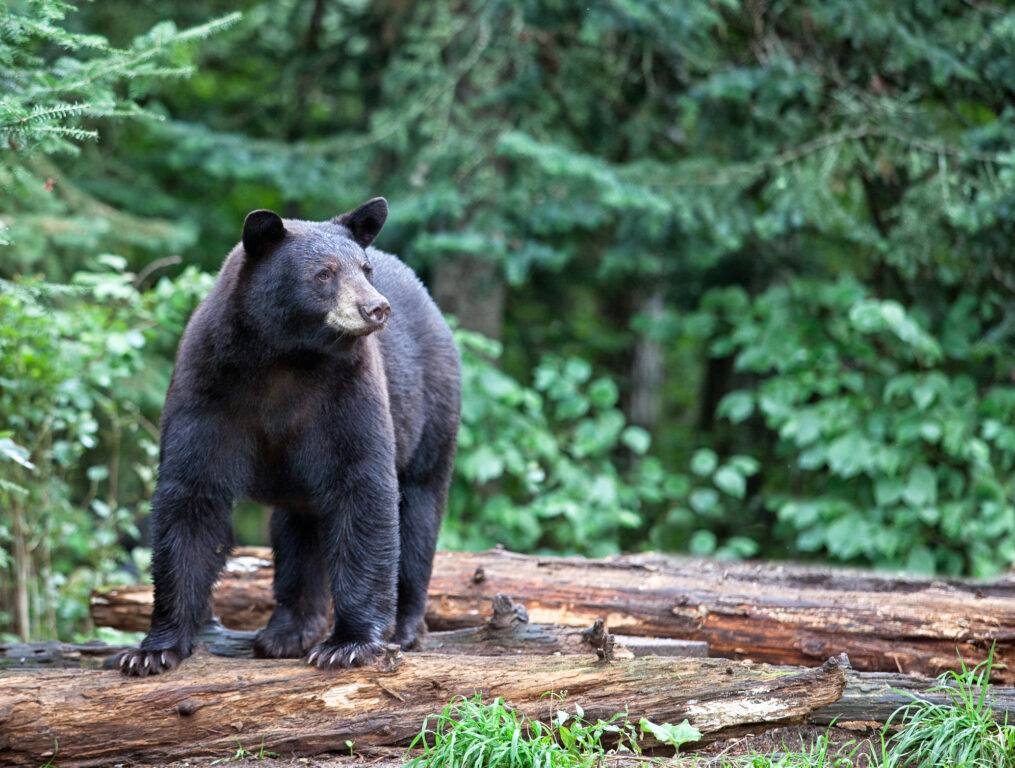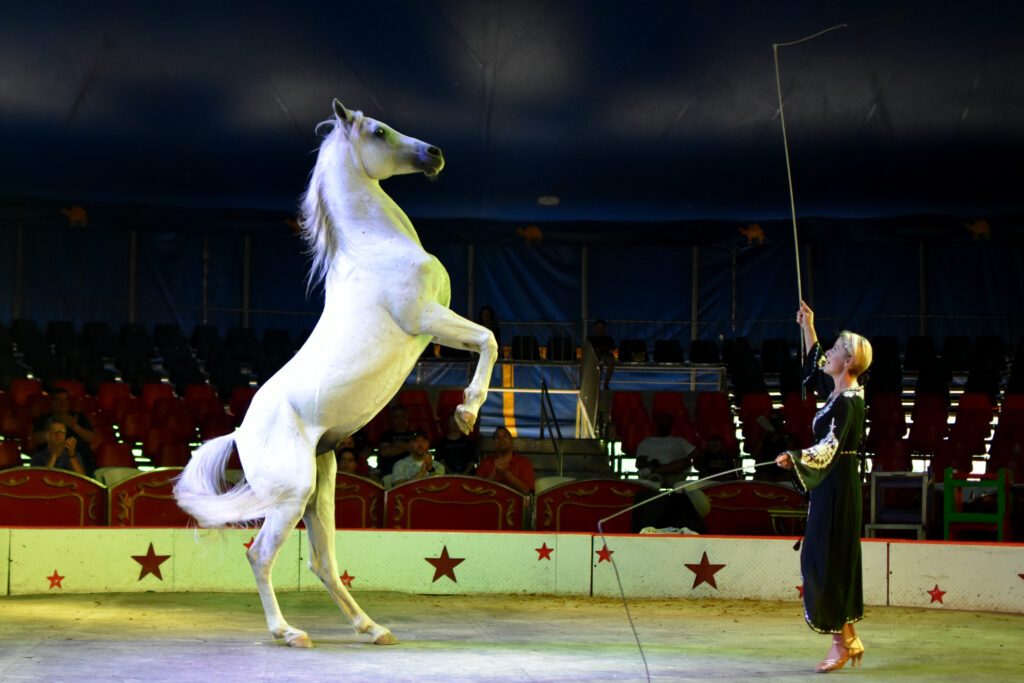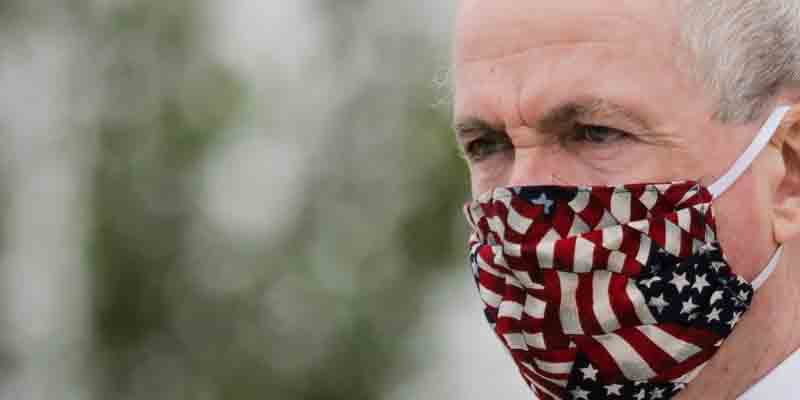Governor Phil Murphy’s tenure has been marked by aggressive enforcement policies, covering a wide range of issues including COVID-19 measures, gun control, illegal immigration, and sanctuary cities. Critics argue that Murphy seems to be on a mission to ban anything he does not like and force New Jerseyans to abide by his own beliefs, raising questions about the balance between governance and individual freedoms.
Most of the time, he circumvents the state legislature to accomplish his goals.
The COVID-19 Pandemic: Stringent Enforcement and Hypocrisy
Murphy, along with Lt. Col. Patrick Callahan and former Attorney General Gurbir Grewal, had been stringent in enforcing COVID-19 restrictions. From penalizing restaurants and bars to issuing tickets for social distancing violations, the Murphy administration went full throttle in cracking down on violators.
However, Murphy’s credibility came into question when he was caught dining indoors at a friend’s restaurant, just minutes after the restaurant had received an executive order violation. This episode added to growing perceptions that Murphy and other politicians were not abiding by their own rules.
Gun Control Measures
Governor Murphy has been vocal about his stance on gun control. While proponents argue that such measures are necessary for public safety, critics claim that Murphy is infringing upon Second Amendment rights, dictating what he believes to be right rather than what the constituents may want.
Immigration and Sanctuary Cities
Murphy’s policies on illegal immigration and sanctuary cities have also polarized opinion. While some appreciate his humanitarian approach, others feel that the governor is overlooking federal laws and creating a state policy that conflicts with national interests.
Perhaps one of the most shocking proposals came from Jersey Shore lawmakers who suggested a bill to fine New Jerseyans a staggering $15,000 for violating Murphy’s orders during the pandemic.
From shutting down businesses for minor infractions to weaponizing regulatory bodies, Murphy has shown a tendency to govern through enforcement and punishment. The cases of Atilis Gym in Belmar and a small diner in Lacey Township are examples where the state used its power to break the will of small business owners, even when evidence suggested that these businesses were not public health threats.
Phil Murphy’s controversial governance strategies invite us to ponder the balance between public safety and individual freedoms. As America navigates the complexities of modern governance, the actions of leaders like Murphy serve as a cautionary tale, reminding us to remain vigilant about the preservation of our freedoms and civil rights.
If you take out all of the things New Jersey Governor Phil Murphy and his Democrat majority allies in Trenton banned during the COVID-19 pandemic, you can still create quite a hefty list of active and proposed bans in New Jersey.
Governor Phil Murphy is the state’s “Banner” in Chief. Forget banning indoor dining, church services, in-school learning, and the rest during the pandemic; Murphy has banned a lot of things since taking office. Some bans were good. Some were bad. Many were just ugly.
Murphy of New Jersey has implemented various policies and regulations since taking office to protect the environment, promote public health, and advance social justice and well, who knows why on some other things.
Here are some of the things banned by New Jersey Governor Phil Murphy since he took office.
Single-Use Plastic Bags

Governor Murphy took a crucial step towards reducing plastic waste by banning single-use plastic bags. This policy encourages the use of reusable bags and aims to combat environmental pollution.
Smoking in Public Parks, Beaches, and Boardwalks
In an effort to create healthier environments, Governor Murphy implemented a ban on smoking in public parks, beaches, and boardwalks, safeguarding both public health and the enjoyment of outdoor spaces.
Smoking in Atlantic City Casinos
Phil Murphy implemented the temporary smoking ban, the subsequent lifting of the ban, and the advocacy efforts of CEASE (Casino Employees Against Smoking Effects) in relation to smoking regulations in New Jersey. However, as restrictions eased, the ban was lifted.
Conversion Therapy
To protect LGBTQ+ individuals from harmful practices, Governor Murphy banned conversion therapy. This ban upholds the rights and dignity of all residents, ensuring that no one is subjected to discrimination or harm based on their sexual orientation or gender identity.
“Ghost Guns”
Governor Murphy addressed concerns related to untraceable firearms by banning the possession and sale of “ghost guns,” which can be assembled from parts without serial numbers. This ban aims to enhance public safety and prevent firearms from falling into the wrong hands.
High-Capacity Magazines
Governor Murphy signed legislation to ban high-capacity magazines, limiting the number of rounds they can hold. This measure is designed to reduce the potential for mass shootings and enhance law enforcement’s ability to respond effectively to such incidents. The magazine ban has not impacted New Jersey violent crime statistics.
Bear Hunting on State-Owned Land

In an effort to protect wildlife, Governor Murphy banned bear hunting on state-owned land, promoting the coexistence of humans and wildlife while preserving the ecological balance. Instead, the ban had a negative consequence. There are too many bears roaming neighborhoods in New Jersey causing some dangerous interactions between the animals and people. In 2022, Murphy reimplemented the bear hunt on state-owned lands.
Offshore Oil and Gas Drilling
Governor Murphy took a stand against offshore oil and gas drilling by banning these activities in state waters. This ban safeguards New Jersey’s coastal environment, marine life, and coastal communities from the potential risks associated with drilling.
Fracking Waste Disposal
Recognizing the potential environmental and health hazards associated with fracking waste, Governor Murphy banned its disposal in New Jersey. This ban protects the state’s water resources and public health.
Circus Animal Performances

Governor Murphy signed legislation to ban circus animal performances, promoting the ethical treatment of animals and taking a stand against animal cruelty. New Jersey was the first state to ban circus animals.
Single-Use Styrofoam Containers

In an effort to reduce plastic waste, Governor Murphy banned the use of single-use styrofoam food containers, encouraging the adoption of more environmentally friendly alternatives.
Tackle Football for Children Under 12
Governor Murphy and Democrats put forth a law prohibiting children under the age of 12 from participating in tackle football, aiming to reduce the risk of long-term brain injuries. So far, that law has not been passed.
Balloon Releases

Recognizing the environmental harm caused by balloon releases, Governor Murphy banned these events to protect wildlife and prevent littering.
Vaping in Indoor Public Spaces
Governor Murphy banned vaping in indoor public spaces to protect public health and prevent exposure to potentially harmful substances.
Plastic Straws

Single use plastic straws were banned in New Jersey beginning on November 4, 2021. Food service businesses shall only provide a single-use plastic straw to a customer upon request by the customer. Food service businesses are required to keep an adequate supply of single-use plastic straws. Stores may continue to sell packages of single-use plastic straws and provide/sell a beverage pre-packaged by the manufacturer with a single-use plastic straw, i.e., juice boxes.
Gasoline Powered Cars
New Jersey is taking a significant step towards a greener future by becoming the sixth state in the United States to prohibit the sale of new gasoline-powered cars after the year 2035. By following the lead of California, Massachusetts, New York, Oregon, and Washington, the state aims to promote the adoption of electric vehicles (EVs) and reduce greenhouse gas emissions.
Wood Burning Stoves
New Jersey, along with nine other states, is taking legal action against the Environmental Protection Agency (EPA) over its standards for residential wood-burning stoves. Concerned about the potential environmental and health impacts of these stoves, the states are seeking to ensure stricter regulations to protect air quality and public well-being.

